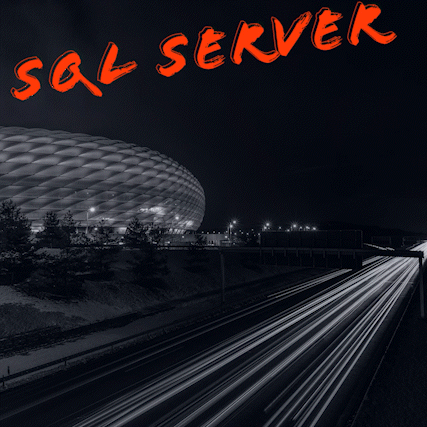Wait statistics, in the context of SQL Server, refer to the amount of time that a query spends waiting to access data in the database. When a client application requests data from the database, the request is placed in a queue and the client application must wait for its turn to access the data. The time that the query spends waiting is called a "wait" and is tracked by SQL Server. This information can be used to identify potential performance bottlenecks and optimize the performance of the database. Wait statistics are commonly used by database administrators to diagnose and troubleshoot performance issues in SQL Server.
SQL Server uses a variety of wait types to help diagnose and resolve performance issues. The HADR_LOGCAPTURE_WAIT wait type is specific to Always On Availability Groups and occurs when SQL Server is waiting to capture log records from the transaction log on the primary replica. Understanding this wait type is crucial for maintaining efficient log synchronization and overall database performance in high-availability environments.
What Is the HADR_LOGCAPTURE_WAIT Wait Type?
The HADR_LOGCAPTURE_WAIT wait type appears when the log capture process in SQL Server is waiting to read new log records from the transaction log of the primary replica. This process is essential for ensuring that changes on the primary replica are transmitted to the secondary replicas for synchronization. Any delays in this step can impact the overall health and performance of your Always On Availability Group.
When Does HADR_LOGCAPTURE_WAIT Appear?
This wait type can occur in the following scenarios:
- High Transaction Volume – When the primary replica generates a large number of transaction log records that need to be captured and synchronized.
- Slow Disk I/O – When the storage system hosting the transaction log is slow to respond, delaying the log capture process.
- Log Capture Bottlenecks – When the log capture process encounters resource contention, such as limited CPU or memory.
- Network Latency – Delays in transmitting log data to secondary replicas can also indirectly cause this wait type to appear.
Why HADR_LOGCAPTURE_WAIT Waits Matter
While some HADR_LOGCAPTURE_WAIT waits are expected in high-transaction environments, excessive or prolonged waits can indicate bottlenecks that may affect synchronization and high availability. Common causes include:
- Slow Disk Performance – Log reads from the transaction log may be delayed if the disk subsystem is not optimized for sequential writes and reads.
- Excessive Transaction Volume – High transaction activity on the primary replica can overwhelm the log capture process.
- Resource Contention – Limited CPU or memory availability can slow the log capture process.
- Blocked Log Records – Transactions waiting on locks or other dependencies can delay log generation and capture.
How to Address HADR_LOGCAPTURE_WAIT Waits
If this wait type appears frequently or for extended periods, consider the following strategies:
- Optimize Disk I/O – Ensure the storage subsystem hosting the transaction log is optimized for high performance with fast read/write speeds.
- Monitor Resource Usage – Check CPU and memory utilization on the primary replica and allocate additional resources if needed.
- Reduce Transaction Volume – Optimize queries and reduce the number of simultaneous transactions to lighten the log capture load.
- Tune Log Capture Settings – Review and adjust Always On configuration settings to ensure efficient log capture and synchronization.
- Improve Network Performance – Use dedicated high-speed network links for Always On traffic to reduce the impact of network delays.
Monitoring HADR_LOGCAPTURE_WAIT Waits
To effectively monitor this wait type, you can use the Historic Waits Monitoring feature in Database Health Monitor. This tool allows you to track wait statistics over time, helping you identify trends and address potential issues before they affect performance. By monitoring waits regularly, you can take proactive steps to ensure the stability and efficiency of your Always On Availability Groups.
Stedman Solutions specializes in SQL Server performance tuning and high-availability optimization. Whether you need help addressing HADR_LOGCAPTURE_WAIT waits or improving your Always On configuration, our Database Health Monitor provides powerful insights, and our managed services deliver expert support to keep your SQL Server environment running at its best. Contact us today to learn how we can help enhance your SQL Server performance and reliability.

Find out more about our SQL Server Managed Services
Applies to
Related Waits
HADR_AG_MUTEXHADR_AR_CRITICAL_SECTION_ENTRY
HADR_AR_MANAGER_MUTEX
HADR_AR_UNLOAD_COMPLETED
HADR_ARCONTROLLER_NOTIFICATIONS_SUBSCRIBER_LIST
HADR_BACKUP_BULK_LOCK
HADR_BACKUP_QUEUE
HADR_CLUSAPI_CALL
HADR_COMPRESSED_CACHE_SYNC
HADR_CONNECTIVITY_INFO
HADR_DATABASE_FLOW_CONTROL
HADR_DATABASE_VERSIONING_STATE
HADR_DATABASE_WAIT_FOR_RESTART
HADR_DATABASE_WAIT_FOR_TRANSITION_TO_VERSIONING
HADR_DB_COMMAND
HADR_DB_OP_COMPLETION_SYNC
HADR_DB_OP_START_SYNC
HADR_DBR_SUBSCRIBER
HADR_DBR_SUBSCRIBER_FILTER_LIST
HADR_DBSEEDING
HADR_DBSEEDING_LIST
HADR_DBSTATECHANGE_SYNC
HADR_FABRIC_CALLBACK
HADR_FILESTREAM_BLOCK_FLUSH
HADR_FILESTREAM_FILE_CLOSE
HADR_FILESTREAM_FILE_REQUEST
HADR_FILESTREAM_IOMGR
HADR_FILESTREAM_MANAGER
HADR_GROUP_COMMIT
HADR_LOGCAPTURE_SYNC
HADR_LOGPROGRESS_SYNC
HADR_NOTIFICATION_DEQUEUE
HADR_NOTIFICATION_WORKER_EXCLUSIVE_ACCESS
HADR_NOTIFICATION_WORKER_STARTUP_SYNC
HADR_NOTIFICATION_WORKER_TERMINATION_SYNC
HADR_PARTNER_SYNC
HADR_READ_ALL_NETWORKS
HADR_RECOVERY_WAIT_FOR_CONNECTION
HADR_RECOVERY_WAIT_FOR_UNDO
HADR_REPLICAINFO_SYNC
HADR_SYNC_COMMIT
HADR_SYNCHRONIZING_THROTTLE
HADR_TDS_LISTENER_SYNC
HADR_TDS_LISTENER_SYNC_PROCESSING
HADR_TIMER_TASK
HADR_TRANSPORT_DBRLIST
HADR_TRANSPORT_FLOW_CONTROL
HADR_TRANSPORT_SESSION
HADR_WORK_POOL
HADR_WORK_QUEUE
HADR_XRF_STACK_ACCESS
See Also
All Wait Types

